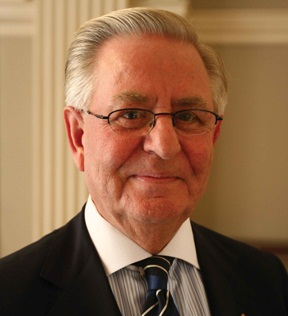IZMIR, Turkey: During the Cold War years, Turkey found itself in a position — both economically and politically — to align with the West, although immediately after the end of the Cold War Turkey started to initiate relations with immediately surrounding countries, including those in the Middle East.
But since then, Turkey has made efforts to demonstrate its suitability for the role of a political, social, economic and cultural bridge between different cultures from the East and West, as well as political and social systems by becoming a member of various regional organizations while also instituting domestic reforms. In fact, last week the public voted in favor of a referendum that will reform the 1980 coup-era constitution, restructuring the judiciary system and solidifying the rights of women, children and disabled citizens. Changes also include repealing an article in the constitution which prevented leaders of the 1980 military coup from facing trial or legal reprisal.
By instituting these reforms, Turkey seems poised to accede to the EU, a position that will then help it to increase people in Muslim-majority countries’ trust and credibility of the EU as its relations with its Middle Eastern neighbors also improve. But despite the government’s efforts domestically and in the region, EU accession has not become a reality.
As American political scientist Samuel Huntington’s clash of civilizations theory dominated political discussions after 2001, Turkish Prime Minister Tayyip Recep Erdogan and Spanish Prime Minister José Luis Rodriguez Zapatero established an organization as part of the UN, the Alliance of Civilizations, which aims to bridge the divide between different cultures and establish a network of partnerships to facilitate dialogue. Turkey has an especially critical role to play in this effort because it has both a majority Muslim population and is a member of NATO, the Organization for Security and Cooperation in Europe, the Black Sea Economic Cooperation and the Organization of Islamic Conference.
To help Turkey realize its goal of being a successful bridge between East and West, however, it is essential that civil society organizations in EU member states and in Turkey work to change the negative perceptions of the “other”, especially because there is resistance at the public level — on both sides — towards Turkey’s entry to the EU. In 2007 Eurobarometer, a series of surveys conducted by the European Commission, revealed that 85 per cent of Europeans believe that cultural differences between Turkey and Europe are too significant for it to become a member of the EU. And public opinion matters, given that some EU member states such as France and Austria have declared that Turkey’s entry will be voted on by their citizens.
These developments have decreased Turks’ enthusiasm for EU membership. In 2009, Eurobarometer showed that less than 50 percent of the Turkish population viewed Turkish accession to the EU as a positive thing while a more recent 2010 study by the Italian foundation Compagnia di San Paolo and the German Marshall Fund of the United States shows that Turkish public support of EU accession has fallen to 38 percent.
These polls clearly demonstrate that there is a lack of information in EU member states about Turkey, and in Turkey about the EU. Therefore, there is a need to work on people’s perceptions, which can be done primarily through the efforts of civil society.
The Erasmus student exchange programs, established by the EU between Turkish and European universities, have helped eliminate prejudices, and the cross border cooperation programs that target the civil society organizations at the borders between Turkey, Greece and Bulgaria have established grounds for people from different cultures to work together. One example of the many implemented projects is the ongoing collaboration between Turkish and Bulgarian organizations that promote the preservation of a common cultural heritage. On the environmental level, projects that bring together Greek and Turkish environmentalist groups have created a friendly environment for both countries’ people to work alongside one another on the common aim of creating sustainable eco-friendly development in the Aegean Sea.
In this way, European citizens’ perceptions towards Turkey and, by extension, Islam, can be changed, which would ease the way for Turkey’s accession to the EU. In return, Turkish membership would increase the EU’s credibility in countries in the Muslim world. These interconnected developments have the potential to increase regional stability and cultivate neighborly relations, something both Turkey and the EU have sought for a very long time.
Cigdem Ustun is an Assistant Professor in the Political Science and Public Administration Department at Gediz University in Izmir. This article was written for the Common Ground News Service (CGNews), www.commongroundnews.org.


